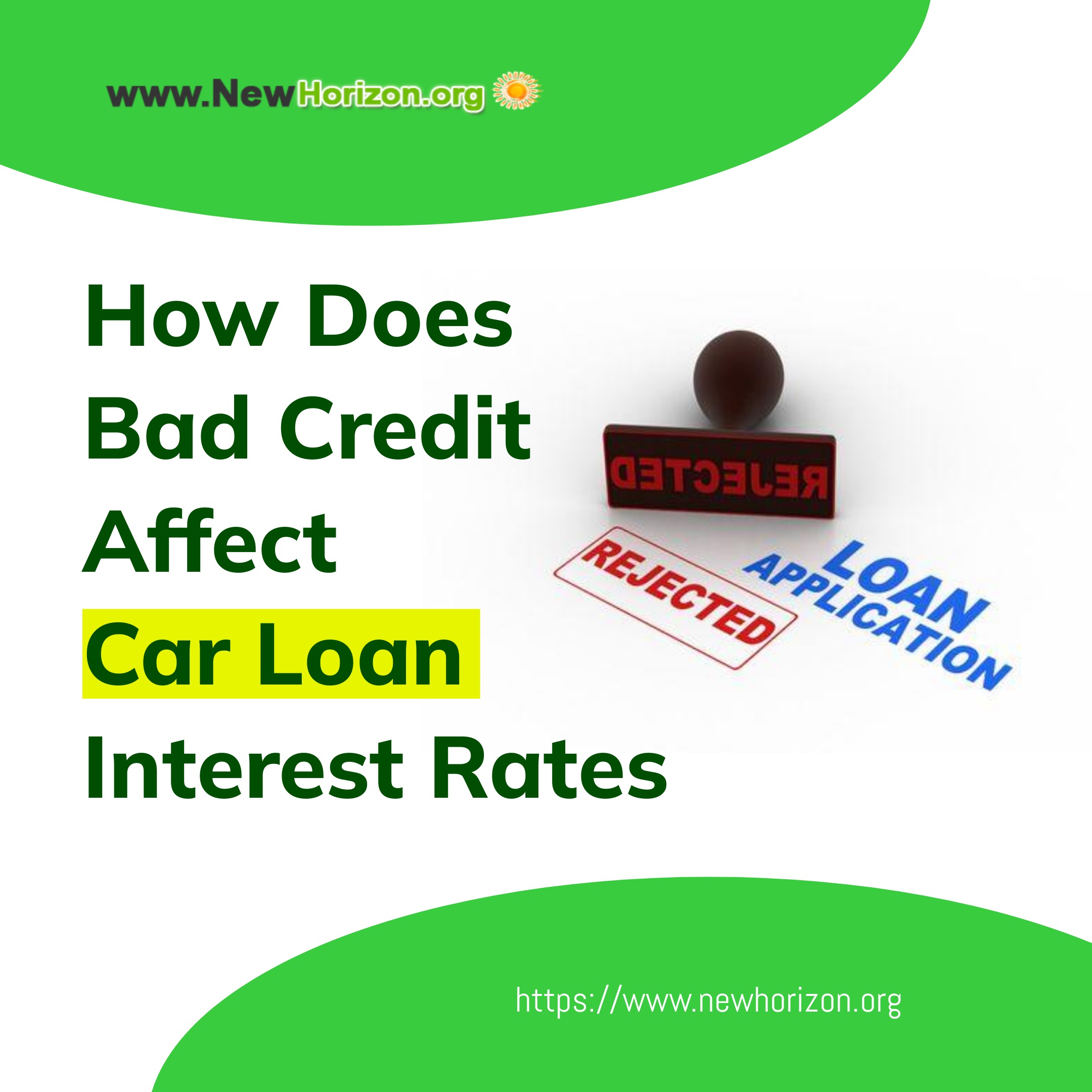How Does Bad Credit Affect Car Loan Interest Rates?
In pursuing the American dream, owning a car symbolizes independence and success for many individuals. However, for those grappling with a less-than-stellar credit history, the dream of driving off the dealership lot in a new car can quickly turn into a financial nightmare. The influence of bad credit on car loan interest rates is an important factor for anyone wanting to finance their next vehicle.
 Exploring the Fundamentals of Credit Scores
Exploring the Fundamentals of Credit Scores
Before delving into the consequences of bad credit on car loan interest rates, it’s essential to understand the basics of how credit scores influence lending decisions. Credit scores, ranging from 300 to 850, provide a snapshot of an individual’s credit quality. Lenders often use these scores to assess the risk associated with loaning money, determining interest rates and loan terms accordingly.
How Bad Credit Affects Car Loan Terms
Bad credit, usually determined as a credit score below 620, can significantly affect the interest rates offered on car loans. Lenders consider persons with bad credit scores to be higher-risk borrowers, leading to the imposition of higher interest rates to offset the risk. This can result in borrowers paying thousands of dollars more over the life of their car loan compared to those with excellent credit.
 Higher Interest Rates Mean Higher Payments
Higher Interest Rates Mean Higher Payments
One of the most tangible effects of bad credit on car loan interest rates is the increased financial burden on the borrower. High-interest rates lead to higher monthly payments, making it more difficult for people with the low credit to purchase the car they want. This can limit the options available and force borrowers to settle for a less desirable or older vehicle within their budget.
Long-Term Financial Consequences
The effect of bad credit on car loan interest rates extends beyond the immediate financial strain. Higher interest rates can lead to a longer repayment period, as borrowers may opt for extended loan terms to manage their monthly payments. This not only increases the overall cost of the loan but also keeps individuals in debt for a more extended period, hindering their financial freedom.
 Effective Approaches to Reduce the Impact of Bad Credit
Effective Approaches to Reduce the Impact of Bad Credit
While bad credit may pose challenges, there are strategies to mitigate its impact on car loan interest rates. Building and improving credit before applying for a car loan is crucial. Paying bills on time, reducing outstanding debt, and disputing any inaccuracies on credit reports are effective steps to boost credit scores. Additionally, saving for a much larger down payment can help demonstrate financial responsibility and potentially secure more favorable loan terms.
Conclusion
Understanding the relationship between bad credit on car loans and interest rates is important for making informed financial decisions. While bad credit may limit options and result in higher costs, proactive steps to improve credit and careful financial planning can help individuals secure more favorable terms and take a step closer to realizing their dream of car ownership.
By learning all the challenges associated with bad credit, you can pave the way for a smoother and more affordable car financing journey.




Comments
Post a Comment